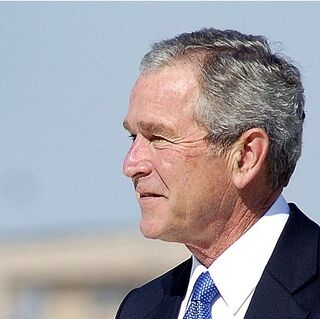Coronavirus Disease 2019
Rise in COVID-19 Cases: Good for Approval Ratings?
The link between the pandemic and political approval ratings is explored.
Posted November 28, 2020 Reviewed by Kaja Perina
A recent article in the Proceedings of the National Academy of Sciences, by Yam and collaborators, found a positive link between the rise of COVID-19 cases and support for heads of governments around the world.
Approval ratings and the COVID-19 pandemic
Since the COVID-19 pandemic began, many governments have been severely criticized for mishandling this new viral outbreak.
For instance, in the early stages of the pandemic, criticism was directed at the Japanese government for not declaring a national emergency soon enough, the US government for not doing sufficient testing, and the Hong Kong government for refusing to shut down the border with China.
However, in many countries, the approval ratings of political leaders did not plummet. Indeed, the opposite effect was observed. Why?

"Rally round the flag" effect
Perhaps these results were due to a phenomenon called the “rally ‘round the flag” effect, which was first described in the context of American political crises.
In short, during times of international crises, public approval for US presidents has often increased. Americans have rallied around whoever was the president at the time and have shown a united front to the world. Some examples include the Iran hostage crisis, the 9/11 attacks, and the Cuban missile crisis.
Would the COVID-19 pandemic count as such a crisis?
In a sense, it should not, because it has little resemblance to the typical international crisis—it does not involve political violence or an enemy agent (whether a person or a state).
Despite these differences, the authors of the present study hypothesized that people would react to the COVID-19 pandemic as they would to an enemy agent, and thus, rally ‘round the flag.
And since the pandemic affected people not just in the US but around the world, the researchers hypothesized other world leaders would enjoy higher approval ratings too.
Study’s methods and results
The present investigation used several datasets of approval ratings for political leaders. These datasets concerned the first four months of 2020 and included daily approval ratings of political leaders from 11 countries—the United States, the United Kingdom, Canada, Mexico, Australia, Brazil, France, Germany, India, Hong Kong, and Japan—and weekly approval ratings of United States governors.
Analysis of data (using multilevel multiple regressions) supported the researchers’ hypothesis: Daily new and total COVID-19 cases showed a positive relationship with leader approval ratings.
Specifically, 1,995 new COVID-19 cases per day were associated with one approval rating point. To put this in perspective, the United States had an average of 30,000 new daily cases in April.
The effects of new COVID-19 cases were not equally strong in all countries or US states. For example, the effect size was “stronger in Canada (β = 0.90) than in Mexico (β = −0.07), and it was stronger in Illinois (β = 0.63) than in Alaska (β = 0.13).”
Overall, there was a significant correlation between “new daily confirmed and total confirmed COVID-19 cases in the country and support for the heads of government.”
How do we explain these findings? The authors propose two explanations, using the system justification theory and the tightness-looseness theory.
COVID-19, system justification, and tightness-looseness
According to the system justification theory, people are motivated to justify the status quo (i.e. current economic or political system). This does not mean everybody believes the system is perfectly fair and legitimate; however, people are motivated to see their system as more fair and justified than is the case.
This motivation is stronger for some individuals. Factors that increase system justification motivations include intolerance of uncertainty and ambiguity, a view of the world as dangerous, perception of threat to oneself (e.g., fear of death), and assumption of threats to the legitimacy of the system (e.g., terror attacks).
So, it is conceivable that a sense of powerlessness, in the face of a deadly threat like the pandemic, could trigger system justification motivations.
The second explanation, complementary to the above, is cultural in nature and based on the tightness−looseness theory.
The tightness−looseness theory suggests “tight” societies, which have more restrictions and fewer liberties, have often experienced more threats historically than have “loose” societies.
To survive these threats (e.g., disasters, territorial threats, disease), these societies have learned to put greater value on coordination, cohesion, and adherence to norms.
And great threats, like the COVID-19 pandemic, can necessitate these behaviors in all societies, including loose ones.

Concluding thoughts on pandemics and approval ratings
The investigation reviewed here concluded that rising cases of COVID-19 were associated with a popularity boost for many world leaders.
A striking example, Yam et al. note, was the elections in Korea, in April 2020. In that election, the “Korean ruling party won the most seats in the house by any party since 1960.”
It is important to remember this study did not investigate how the rally ‘round the flag changes over time.
For instance, Donald Trump’s approval ratings dropped significantly later on. Why? Perhaps the pandemic-related rise in approval ratings naturally declines over time. Or maybe Trump’s continued mishandling of the pandemic eventually outweighed the rally ‘round the flag effect. We do not know.
Future research needs to evaluate how the rally ‘round the flag effect changes over time during prolonged and unpredictable crises like the COVID-19 pandemic.




